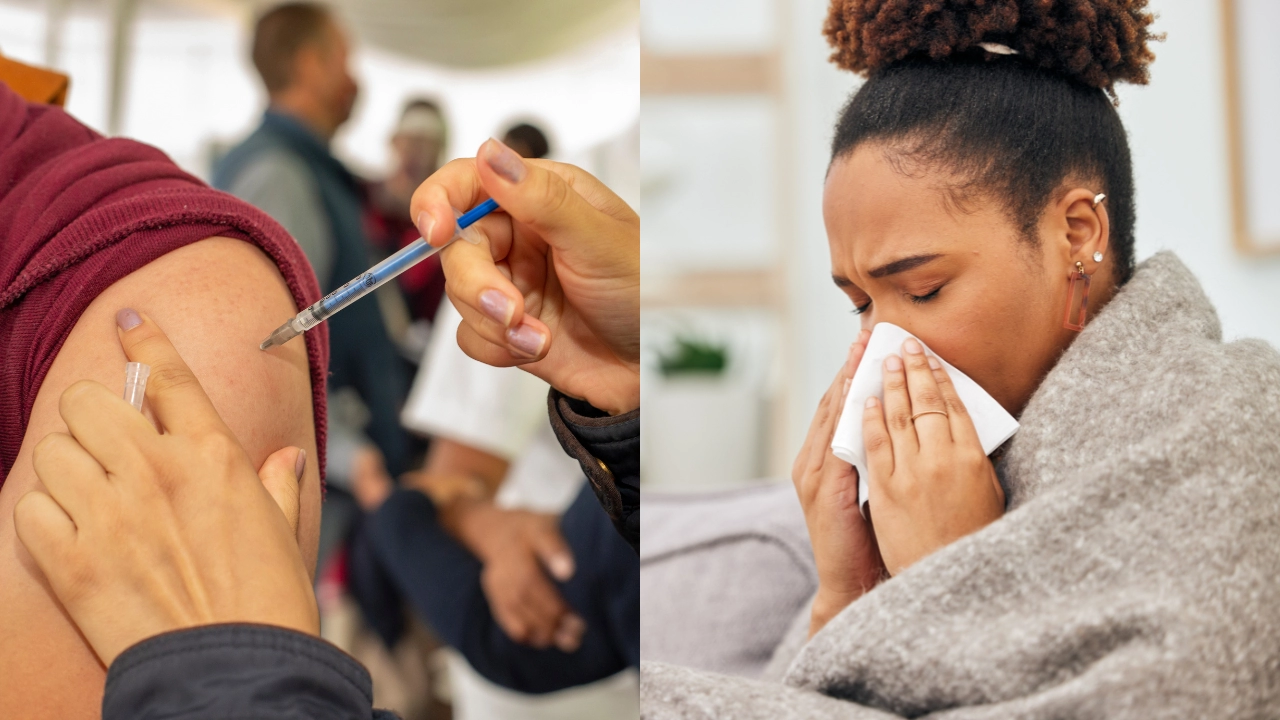During winter, people typically spend more time indoors due to colder temperatures. This leads to closer contact and increased chances of spreading the influenza virus. Besides this, central heating also dries up the air, a scenario that dries nasal linings and lowers one's capability to trap or strain off pathogens.
The ventilation indoors during winter is restricted usually as a way to maximise the retention of heat with fresh air circulation reduced, resulting in the concentration of viral germs in the atmosphere. It is reported that the influenza virus can survive for a long period in cool and dry conditions, thus remaining highly infectious for even a considerable period on any surface or in the atmosphere.
All these factors create an ideal environment for spreading influenza among people during indoor gatherings, resulting in more outbreaks in the winter months. We speak with an expert to provide clear insights on preventive measures to take, the side effects of vaccination, and more.
Poor Air Quality in Urban Areas Increases Winter Influenza Risk
Chances of transmitting influenza are at a large extent in a heavily populated urban area, particularly during winter when the quality of air is poor. According to P Venkata Krishnan, Senior Consultant of Internal Medicine at Artemis Hospitals, such pollutants as particulate matter and nitrogen dioxide, plentifully found in urban environments, can weaken the respiratory system, which is prone to infections such as influenza.
This cold weather may also give rise to temperature inversions that trap pollutants close to the ground, worsening the quality of air. “This impaired functioning of mucociliary acts compromises the natural defence system by the respiratory system against most pathogens, making an easy attack of flu virus on those patients,” he says, adding that high population density also elevates exposure risk, as people frequently gather in public transport and crowded indoor spaces, facilitating the spread of influenza in urban settings.
Potential Complications of Influenza in Chemotherapy and HIV Patients
People who are undergoing chemotherapy or with HIV have weakened immune systems, making them more vulnerable to severe influenza complications.
“Chemotherapy suppresses the immunities of the body that would not allow the organism to fight the treatment used to remove the cancer within it, whereas HIV targets the immune cells and reduces all the immunities. Resulting in flu problems leading to complications such as pneumonia, bronchitis, sinus infections, etc., or exacerbating severe chronic conditions such as worsening asthma or heart disease conditions,” says Dr Krishnan.
On recovery, he says that it takes a long time and weak immunity makes patients vulnerable to any secondary bacterial infections. “Flu symptoms like fever and inflammation can strain an already compromised immune system, leading to life-threatening situations. For these people, early antiviral treatment and vaccination are essential preventive steps,” he adds.
Preventive Measures for Healthcare Workers and Caregivers to Avoid Influenza
Healthcare staff and doctors have the highest risk of becoming exposed to the influenza virus due to their close contact with the infected. “They should take annual immunisation against influenza to avoid the most rampant influenza viruses. Maintain hygiene to avoid germs is provided through hand washing using soap and water. Wearing personal protective equipment, such as masks and gloves, would reduce the direct transmission of respiratory droplets,” Dr Krishnan says.
Moreover, frequent disinfection of patient care surfaces is also significantly helpful in reducing indirect transmission. Ventilation of healthcare settings and reduction of overcrowding in waiting areas should also be considered. All these measures would significantly reduce the risk of influenza among healthcare workers.
Side Effects of the Flu Vaccine and When to Seek Medical Attention
“Most people will experience mild, short-lived side effects following flu vaccination. These include pain, redness, or swelling at the injection site; low-grade fever; tiredness; muscle aches; headaches; and mild chills,” says the expert.
These are all signs that the body is building protection and requires no medical attention. More severe effects of this allergic reaction could be that a patient begins to face breathing issues or facial swelling, accompanied by hives or tachycardia. One may need to consult with their doctor when experiencing such problems as high fever, continuing weakness, or neurologic symptoms. Although such cases are very rare, immediate medical attention is the only way to deal with unexpected complications safely.
Get Latest News Live on Times Now along with Breaking News and Top Headlines from Health and around the world.

